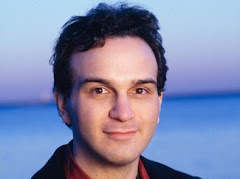Juan Manuel Cañizares, the famous and legendary Spanish flamenco guitarist, ensured a full house at the DFP for the "From Spain With Love" concert conducted by David Giménez Carreras, who is the eminent tenor José Carreras' nephew.
The concert opened with a fair rendition of the 1916 orchestral suite from Manuel de Falla’s El amor brujo, a story of witchcraft and love which captures both the sensual and the demonic. The MPO under Giménez Carreras were on autopilot mode as the conductor failed to inspire the orchestra to evoke the intensity, passion and anguish of de Falla's colourful score. Tempi were often slower than usual and rhythms were very slack and not pointed at all.
Often, a lot of extra punch from Giménez Carreras was needed to inject much more vigour into proceedings. The fiery movements like the Dance of Terror and Ritual Fire Dance lacked zip and vim in the stomping rhythms especially. However, there were moments where de Falla is generous with solos and individual contributions from the woodwind (sinuous oboe playing from Elisa Metus) and strings (a particularly vibrant cello solo from Csaba Körös and a superb violin solo from Peter Daniš which was simple in its elegance) were a delight to hear.
The audience was especially thrilled when Cañizares emerged to play his compatriot Joaquín Rodrigo's evergreen Concierto de Aranjuez. A prodigious technician and supremely expressive player, Cañizares gave a masterful account of this much-loved work. The first movement was breezily paced and Cañizares' crisp technique ensured great clarity of textures. Despite the tempo of the fiercest scale passages, Cañizares was the epitome of relaxed virtuosity and every phrase was beautifully finished without any sense of haste.
The heart of the work is its extended slow movement with its two separate cadenzas. The MPO’s cor anglais player demonstrated a delicious range of colours during his solos, whilst Cañizares indulged in extended meditative arabesques. Cañizares steered a sensible course between tristesse, sentimentality and over-sophistication, revealing yet another impressive level of technical accomplishment. Yet this reading here was at times slightly overstated and much more impassioned (relative to his 2011 Madrid performance with the Berlin Philharmonic under Sir Simon Rattle on DVD), but received no corresponding passionate response from Giménez Carreras and the MPO.
The closing third movement was given a highly disciplined account from soloist and orchestra, with plenty of colour and variety whilst being infectiously buoyant. Applause for Cañizares was long and sustained and he returned for several curtain calls with his trademark disposition of quiet modesty. He rewarded the audience with an encore in the shape of his own virtuosic composition entitled El Abismo.
After the interval, Granados' lyrical Intermezzo from Goyescas served a short interlude before the closing two famous Spanish-themed pieces written by a Frenchman and a Russian. Giménez Carreras gave the audience yet another somnolent interpretation of Frenchman Bizet's popular Carmen Suite No 2, with little snap of the implied lively rhythms of the Habanera and the Chanson du toreador. The final Danse bohemienne was entirely pedestrianly paced and lacked swagger.
Russian composer Rimsky-Korsakov's Capriccio espagnol is one of my favourite orchestral pieces, which I know thoroughly from Lorin Maazel's barnstorming version from 1959 with the Berlin Philharmonic on earth-shattering form. The MPO and Giménez Carreras were again on poor form, with slack rhythms and a disinterest to bring out the festive Spanish tonal colours. The final Fandango was soporific and taken a sluggish pace, unlike the tour de force that it should be.
Friday, 30 March 2018
Cañizares steals the Spanish show
Subscribe to:
Post Comments (Atom)

















































No comments:
Post a Comment